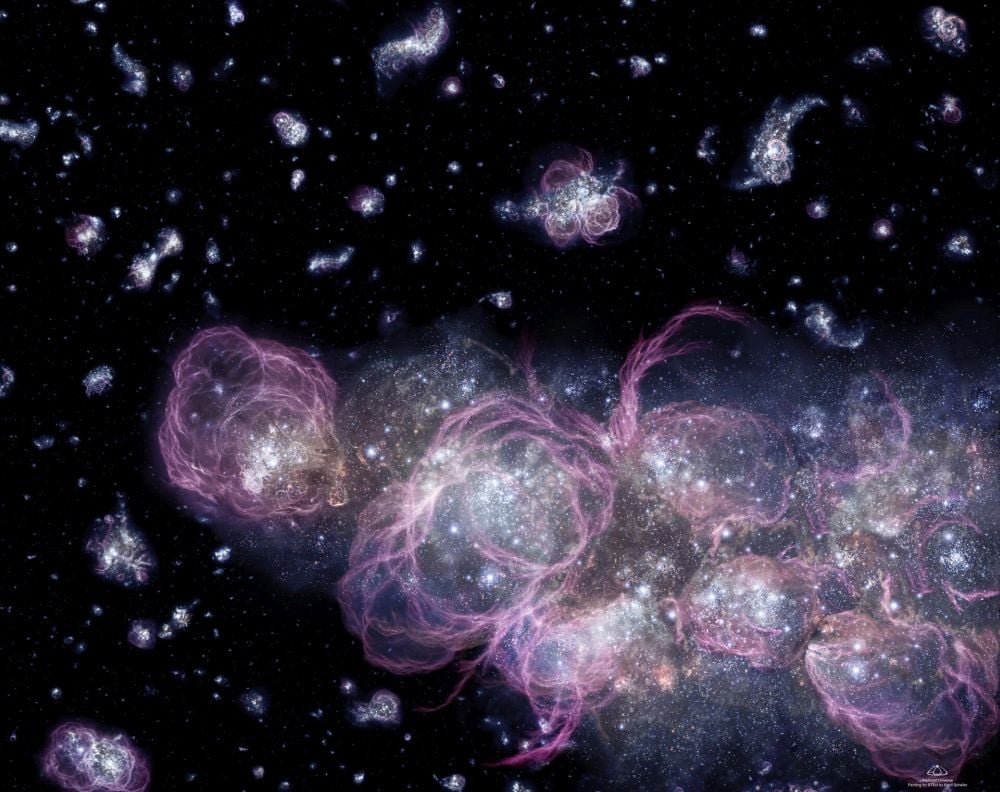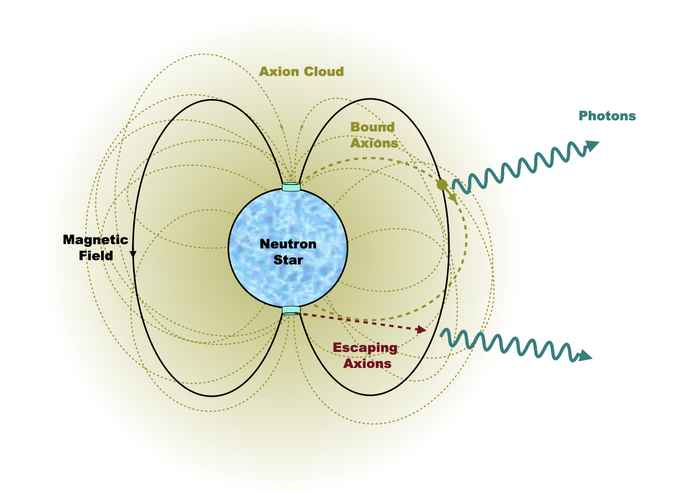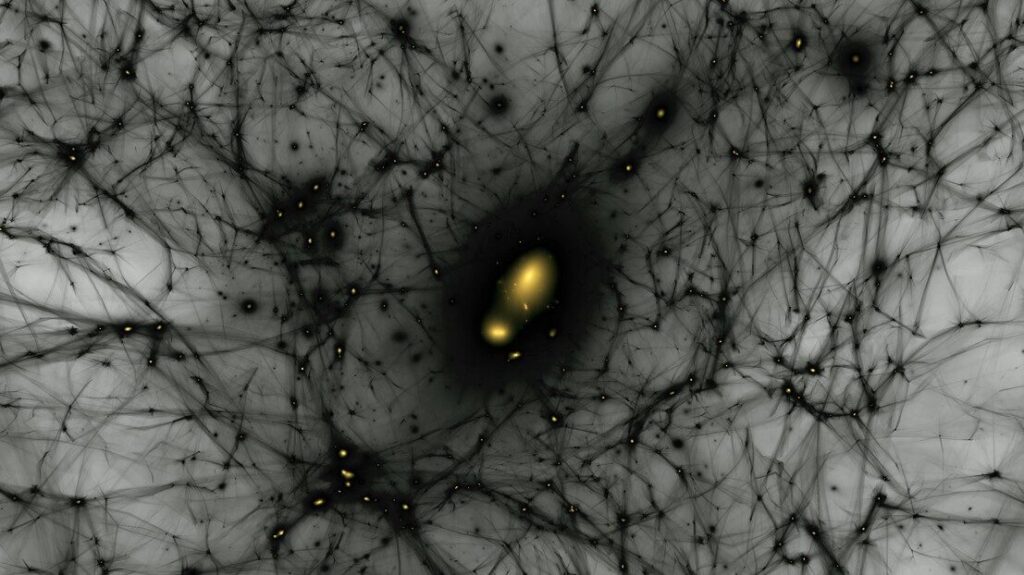
Dark matter is a confounding concept that teeters on the leading edges of cosmology and physics. We don’t know what it is or how exactly it fits into our understanding of the universe. We only know that its unseen mass is a critical part of the cosmos.
Astronomers know dark matter exists. They can tell by the way galaxies rotate, by exploiting gravitational lensing, and by analyzing fluctuations in the Cosmic Microwave Background. But new research suggests that there might be another way to detect its presence.
The research is “Dark Matter (S)pins the Planet,” and it’s available on the arXiv preprint server. Haihao Shi, from the Xinjiang Astronomical Observatory at the Chinese Academy of Sciences, is the lead author. The co-authors are all from Chinese research institutions.
Read More









Recent Comments